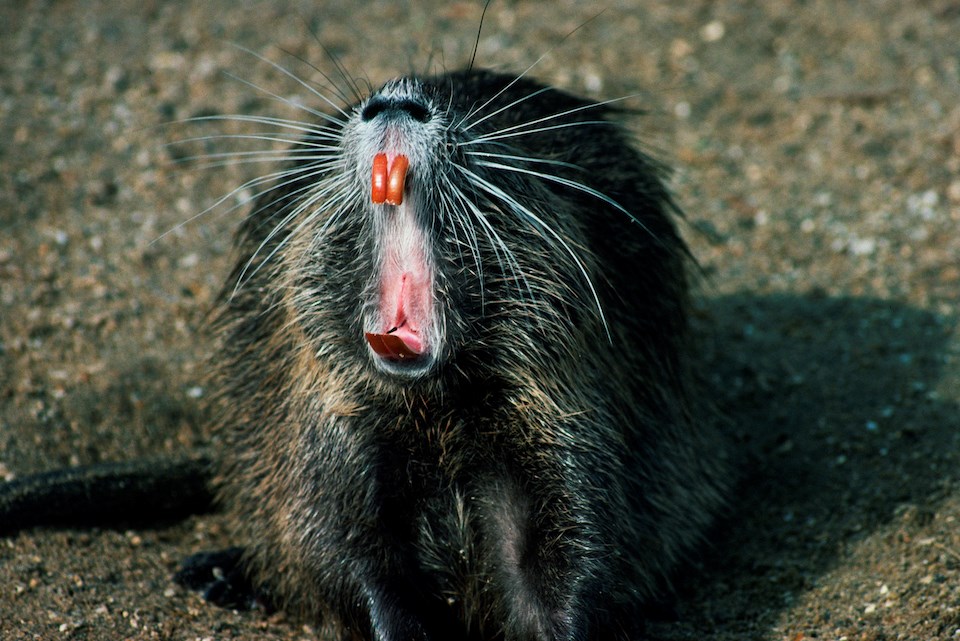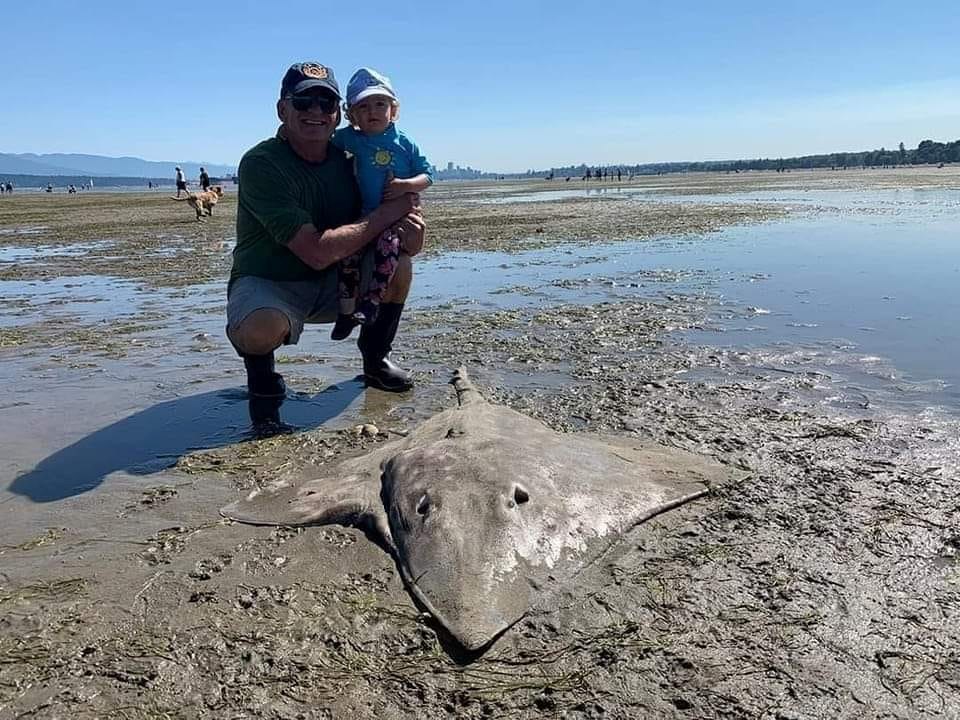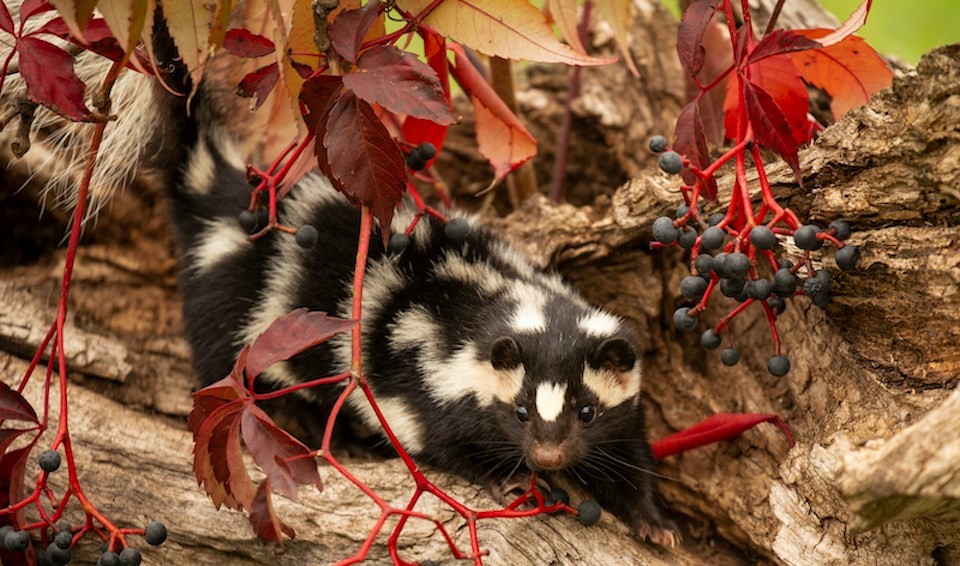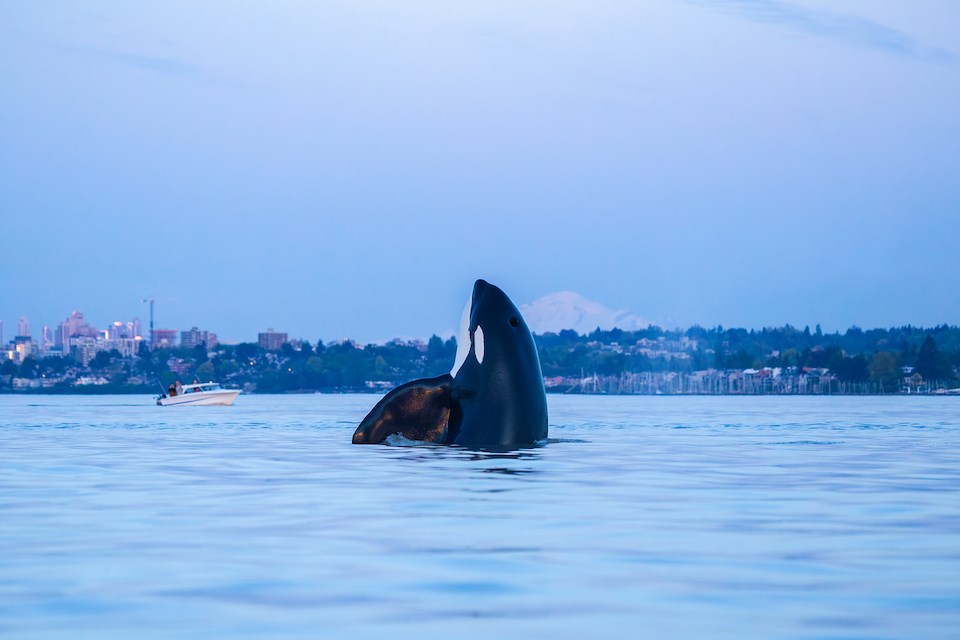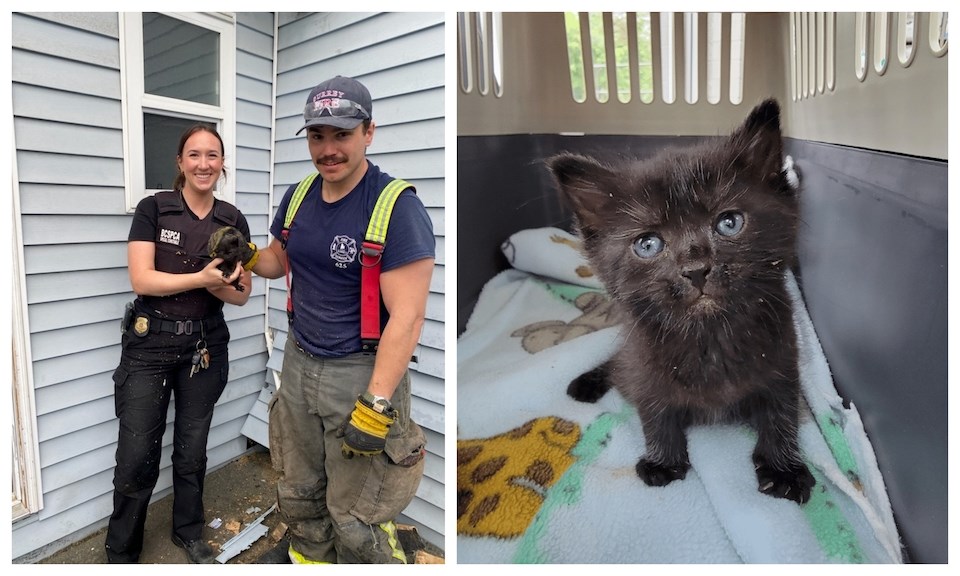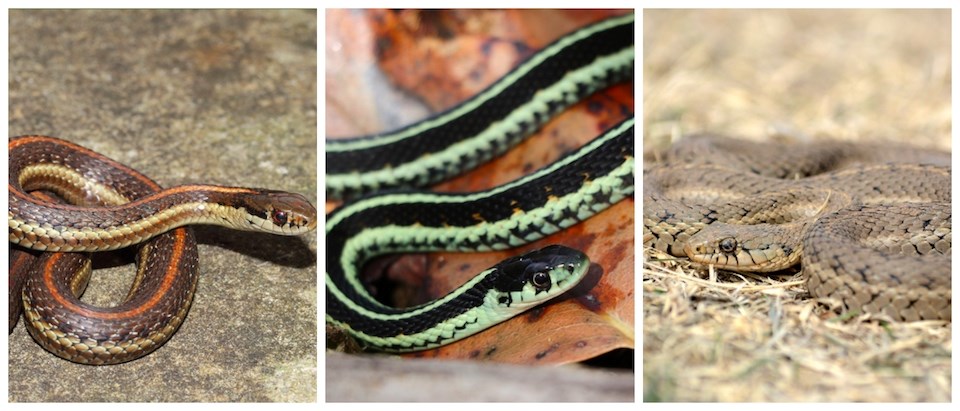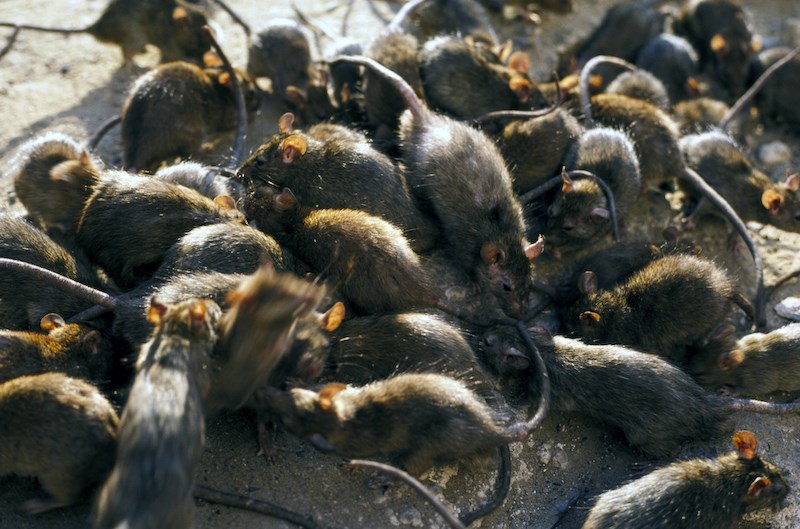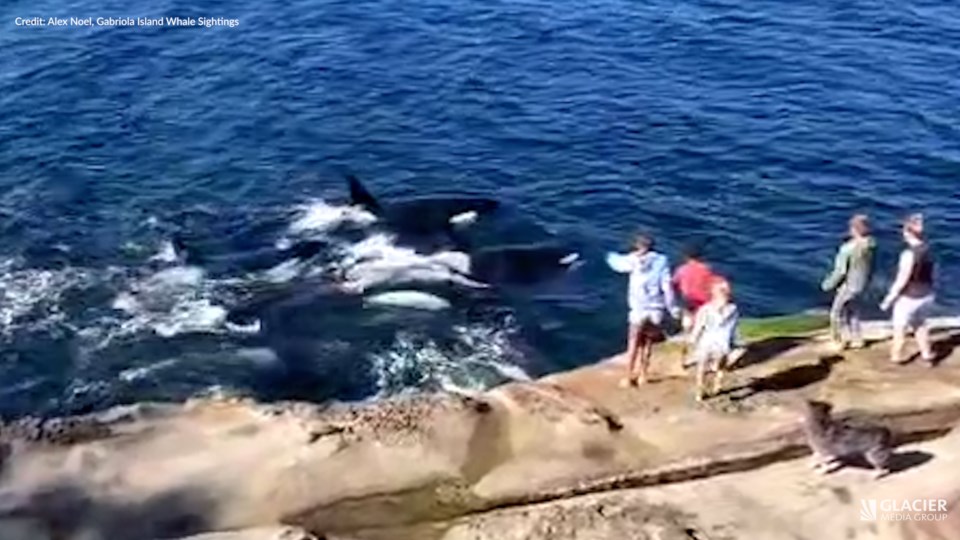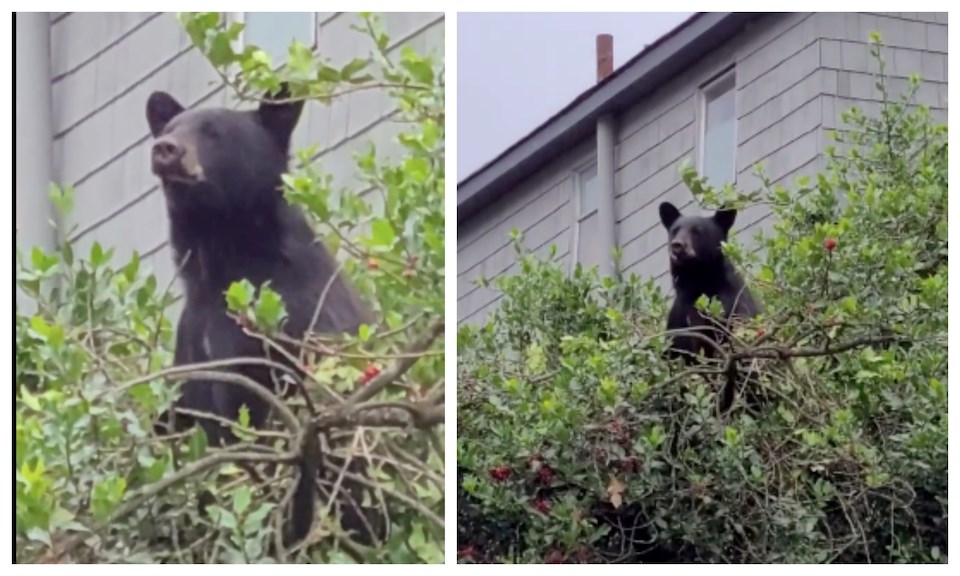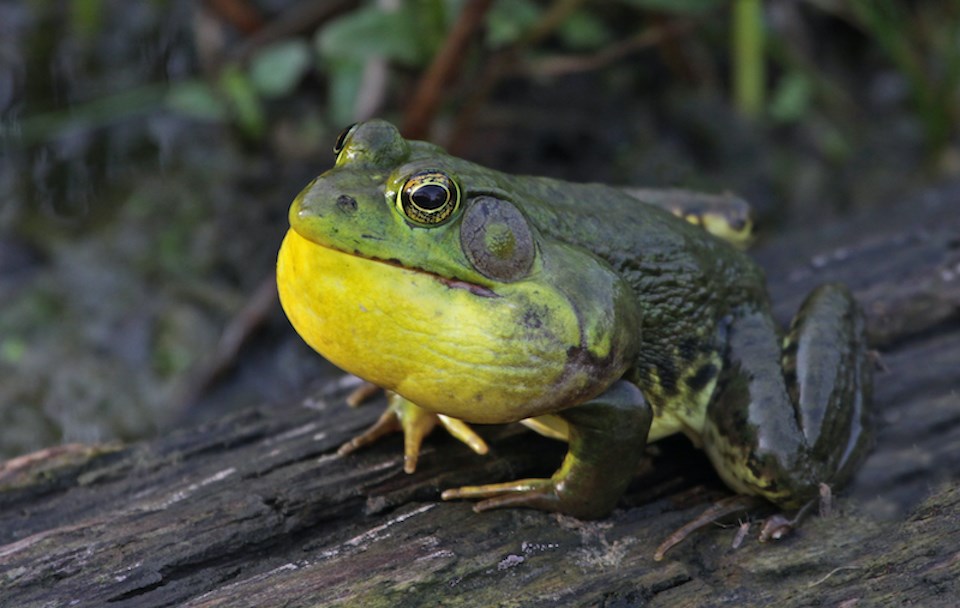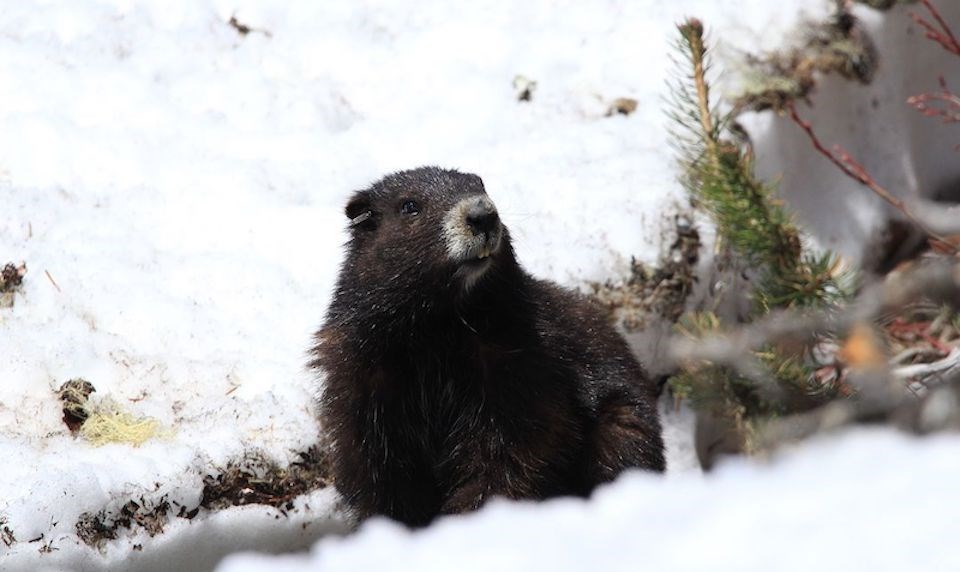While there are many ways to measure a year, using its most interesting animal stories is an amusing barometer.
Luckily, B.C. has no shortage of fascinating critters and people who are passionately devoted to learning about them.
And while you might see some of them out on a stroll, others are a little harder to track down. For example, the spotted skunk, one of B.C.'s most adorable critters, tends to venture out more at night, meaning you'd need night goggles to spot it. Similarly, the Â鶹´«Ă˝Ół»Island Marmot lives at higher elevations on mountaintops.
A common animal also made a splash in Â鶹´«Ă˝Ół»headlines this year. The BC SPCA says a tiny kitten's fighting spirit helped keep her alive for four days while she was trapped inside a wall. They appropriately named her “Lenna," which means “lion-hearted."
Have a look at V.I.A.'s top animal stories of 2023.
This animal looks like a beaver crossed with a rat and lives in Metro Vancouver. But it shouldn't
These critters have long white whiskers and trademark dark orange chompers that really stand out.
It's about the size of a beaver (and looks like one) but it has some decidedly rat-like features -- and it isn't supposed to be here.
And if you come across one in the Lower Mainland, you need to report it to the government. These unique rodents have their own way of messing up the local ecosystems, particularly for animals that share common habitats.
Retired firefighter and grandson save unusual fish stranded on a Â鶹´«Ă˝Ół»beach
The pair were enjoying a day at the beach when they came across a marine inhabitant that looked strikingly similar to a stingray.
And it wasn't a small fish; Pospisil says it was 1.5 to 2 m from tip to tip.
'Slender and smaller': These adorable, rare 'spotted skunks' live in Metro Vancouver
Spotted skunks are elusive creatures and tend to be smaller, slimmer, and more nocturnal than their striped cousins.
When they feel threatened, the spotted animals will stamp their forefeet and "perform a bit of a handstand and point their tails back towards the aggressor," a local researcher told V.I.A.
'Terrified and immensely excited': Â鶹´«Ă˝Ół»kayaker shares epic photos from orca encounter
A young Â鶹´«Ă˝Ół»photographer was out kayaking when he heard the blow of a whale and saw the large dorsal fin of a male orca in the distance. He stayed where he was and observed two other individuals with it, which he believed were another male and a female (the females have a smaller and rounder fin while the males have a larger and very pointed one).
The orcas proceeded to swim right by his kayak, "almost as if they were investigating me!" he told V.I.A.
'Fighting spirit and loud cries saved her': Tiny kitten 'Lenna' trapped in Metro Â鶹´«Ă˝Ół»building for 4 days
A tiny kitten was rescued after being trapped on a Metro Â鶹´«Ă˝Ół»property for four days.
Mark Vosper, the regional manager of animal protection (Lower Mainland & Fraser Valley) BC SPCA said her "fighting spirit and cloud cries saved her."
The animal protection officer who rescued the tiny feline nicknamed her “Lenna”, which means “lion strength” or “lion-hearted."
Here are 3 snakes that you might not know live in Metro Vancouver
B.C.'s female garters are larger than their male counterparts, thanks to the babies that they carry with them until birth. That's right: unlike many other reptiles, these snakes don't lay eggs.
There are three different types of legless lizards that you'll spot in Metro Vancouver. Thankfully, none of them are harmful to people.
The Northwest Pacific Rattlesnake is the only B.C. snake with a venomous bite that can harm humans. Disturbingly, it can even bite you when it's dead, and you could get bitten by a decapitated snake head. As such, you shouldn't handle a rattlesnake, dead or alive.
'I had a rat climb right into my hand': Â鶹´«Ă˝Ół»rat study reveals rodent diseases and surprising 'personalities'
Did you know one Vancouver city block could have diseases, while the block right beside it could be relatively disease-free?
Canada's first comprehensive rat study was launched in Vancouver's DTES to learn about diseases their behaviour, the risk they pose to the public, and how to manage their populations -- but it produced some unexpected results.
If you see a rat in your area, that is likely your "neighbourhood rat." These local critters don't like don't move far away from the place they were born. Also, removing rats from a population doesn't necessarily produce positive results. In some instances, it might cause a spike in disease.
A researcher who was on the project told V.I.A. that "from trapping about 700 rats, I can say they have their own unique personalities."
'Closest sighting': Orcas swim right beside B.C. island, feet from people on shore
A pod of orcas swam about three feet away from a group of people who were standing on B.C. island.
The marine beauties stayed in the area for a couple of hours, allowing onlookers ample opportunity to soak in the rare sight.
'Where did it come from?': This black bear was spotted in a Â鶹´«Ă˝Ół»tree
Residents of a Â鶹´«Ă˝Ół»neighbourhood were shocked to see a young bruin in a tree outside of a home.
A video of the bear shows it perched at the top of a tree, curiously gazing out at the neighbourhood around it.
Bullfrogs will eat nearly anything in Metro Vancouver. Why should we stop them?
Their trademark throaty call and cartoonish appearance might make them a beloved marshland inhabitant.
But bullfrogs are an invasive species in B.C. that has been wreaking havoc across the Lower Mainland.
The large frogs have a motto: constant consumption -- and that doesn't bode well for other animals.
Their carnivorous diet consists of everything from mammals and insects to birds and lizards and even other amphibians. It isn't uncommon to see one eat a snake, a mouse, or another frog. Provided it can get its mouth around it, it's fair food game.
Bonus: The only mammal that is 'endemic' to B.C. is part of a peculiar tradition over 100 years old
In B.C., Â鶹´«Ă˝Ół»Island marks Groundhog Day with a Â鶹´«Ă˝Ół»Island marmot called Van Isle Violet — and she is every bit as cute as her moniker.
The Â鶹´«Ă˝Ół»Island marmot evolution story isn't the only thing that makes it special, however. It is also the only mammal that is endemic to B.C., meaning that it doesn't exist anywhere else in the world. There are only five mammal species that are endemic to Canada, making the mountain-dwelling rodents a unique species.
